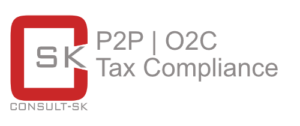The Fourth Bureaucracy Relief Act (BEG IV) brings some significant simplifications and adjustments for retailers and other companies in the accounting sector. These changes are intended to reduce the administrative burden and increase efficiency in accounting and administrative areas.
How does this benefit our customers and ourselves as process digitizers?
Advantage 1: Shorter retention periods
The retention period for accounting documents will be reduced from ten to eight years, which will reduce storage and administrative costs. This also has an impact on the provisions for storage costs, which can be adjusted accordingly. For documents of companies subject to financial supervision, this regulation will only come into force one year later.
What does this mean in concrete terms for our retail customers? Let's take an example Invoice for a food retailer with 300 stores. And assume 4 checkouts per store (usually there are 3-6 checkouts depending on store size). As a rule, the data volumes are considerable for a retail store that processes several hundred to a thousand transactions a day. On average, a data volume of around 0.5 to 1 GB per day per checkout can be assumed, as DSFinV-K data contains detailed information on each transaction, such as items, prices, tax details, and additional data for each signature.
For example, for a business that processes 1,000 transactions per day and requires 500 KB of memory per transaction, the annual estimate is as follows:
- 500 KB x 1,000 transactions x 303 days (average days open in EH per year) = ca. 151.5 GB per cash register and year
For our example calculation, the annual data volume for 300 stores with 4 tills each adds up to 18,800 GB. So if the 2-year retention obligation is eliminated, you can imagine the archiving burden that is eliminated. After all Cash register data are not only stored somewhere, but in the case of a Cash audit also be retrievable again! Exactly what our SAP AddOn Receipt4S® reliably for our customers.
Advantage 2: Relief from value added tax
Quarterly instead of monthly reporting of advance VAT returns is now possible for many companies. This reduces the administrative burden and gives small companies more flexibility.
Advantage 3: Digitization and elimination of written form requirements
A central goal of the BEG IV is the Promotion digitization in administration and companies. This includes the ability to submit rental agreements for commercial premises and many other applications (e.g. parental leave and part-time work) in text form, which is particularly advantageous in digitalized working environments and home office contexts. The traditional written form is being replaced by electronic formats such as email, which simplifies the process and reduces media disruptions.
For Consult-SK and its subsidiary REexpect - specialized in the RE-FX module - this elimination of the written form requirement means that we can Documents more extensively into our digital (automation) processes. Another plus for compliance! As experts in the processing, editing and linking of documents in the SAP system (on-premise and Cloud), we are pleased about the adjustments mentioned in BEG IV. The cross-departmental Avoidance of media discontinuities is our core competence.






